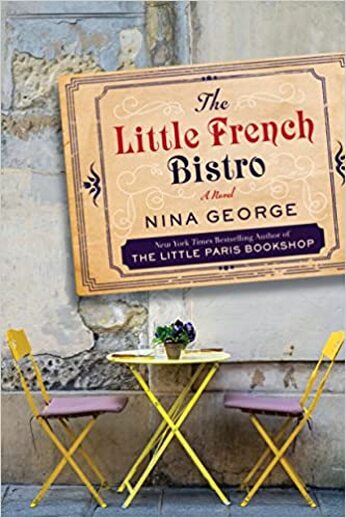 On the surface, “The Little French Bistro” has all the makings of a Hallmark-like romance. You have a 60-year-old woman rediscovering her life and passion after an event has her running away from her loveless, controlling husband, and making a new life for herself in Brittany. It sounds super idyllic and charming, except that the synopsis is misleading. Especially about what that “event” is, which inspires her to run away, but I’ll get into that in a second. This story is populated with a ton of people all like our main character, Marianne, too. All of them are floundering in their romantic relationships in some capacity and need something—or someone—to help push them toward living their lives full of love and passion. Again, another concept that I love and was super here for, except there were too many characters and they all sort of ended up blending together by the end of the book. Ok, so, first, that “event”. I’m mentioning it because 1. It happens within the first chapters of this book so it’s not really a spoiler and 2. It’s incredibly dark which, given how the book positions itself, was a bad surprise. The event that inspires Marianne to leave her husband is a failed suicide attempt. When she is saved and left in the hospital by her husband, who basically tells her to suck it up because she’s costing him money, she decides to run off to a more remote beach area—the location where the rest of the story takes place—in order to complete the deed. That’s where she rediscovers her reasons to live. Now, if the book had been a bit more honest about that inciting incident, that’s fine! Because then it could have focused on that journey back from depression that is so relatable for so many people, and is an incredibly powerful story to tell, but that’s not really what we get. Instead, Marianne slowly transforms into a water sprite/woman-in-the-woods type character where she becomes a good luck charm of sorts to all the other characters in the book. She does relearn to be the woman she had locked away for 40 years with her husband, but that journey felt very small in comparison to Marianne becoming a plot device to other character’s love stories.
I wanted something light and fluffy with this book, and that’s not entirely what I got, at least not until closer to the end of the story. I really enjoyed the last third of the book and seeing the joy in which Marianne (and the other characters) starts to live her life. She still had moments of utter frustration, but, overall, it was more enjoyable than the start of the book. But I feel like this story would have been greatly improved if some of these secondary characters had been removed so the focus could have remained on the main cast, specifically Marianne. Too often the characters came across as one-dimensional despite having complex relationships or illnesses that they had to learn to cope with. I also felt that Marianne’s transition at the end to being this sort of spiritualist was pretty disconnected from the rest of the story, and, for a woman who wasn’t allowed to enjoy life for 40+ years, it seemed like she too easily became good, or “magical”, at everything she tried. The book was fluffy-ish, but not the affirming “you’re never too old to find passion” romance I was hoping for. Coupled with far too many side characters, and an MC that people fawned over for no reason, it shouldn’t be a surprise why this is a 2 star read for me…
0 Comments
Leave a Reply. |
Click the book images to see them on Amazon!
Categories
All
|






 RSS Feed
RSS Feed



















